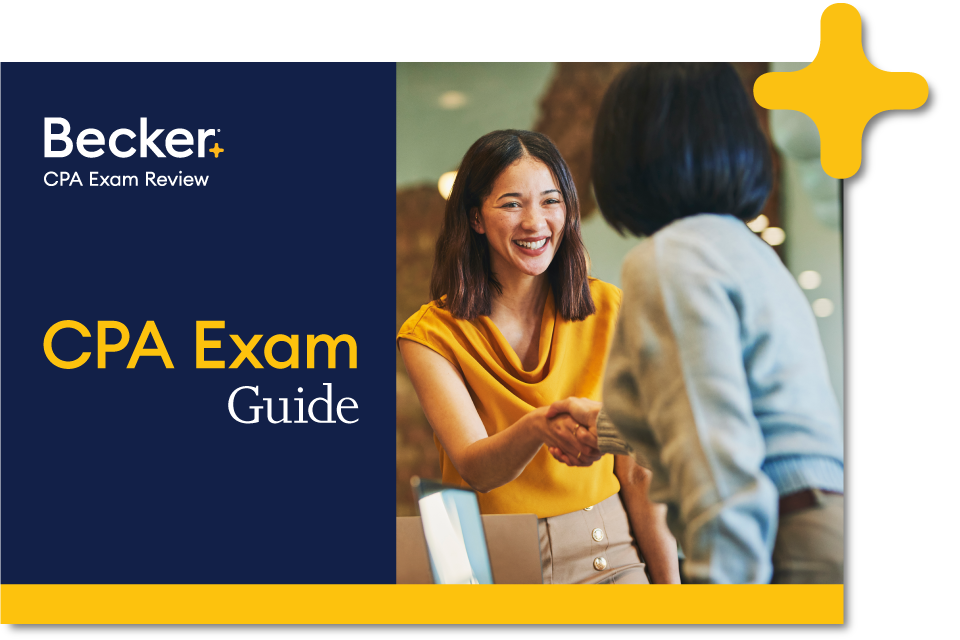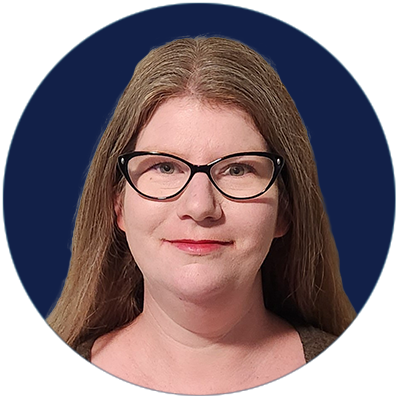If you’re interested in tax and want to focus your career in this area, you may want to consider choosing the Tax Compliance and Planning (TCP) Discipline of the CPA Exam. To help you determine if this is the right choice as well as help you prepare and pass, we’re sharing everything you need to know about the TCP CPA Exam.
Table of contents
- What is the TCP CPA Exam?
- TCP CPA Exam content outline
- How is the TCP exam scored?
- Is the TCP CPA Exam right for me?
- When should I take ISC?
- TCP CPA Exam study tips
Download our FREE 2024 CPA Exam Guide

What is the TCP CPA Exam?
The CPA Exam consists of four separate exams to assess a CPA candidate’s knowledge and skill in advanced accounting topics. In January 2024, the American Institute of Certified Public Accountants (AICPA) and the National Association of State Boards of Accountancy (NASBA) released a new CPA Exam designed to ensure that new CPAs have the skills required to practice modern public accounting.
The new exam still consists of four sections: three required Core sections that focus on fundamental skills and one Discipline section that builds upon those fundamentals to ensure deeper understanding and application of specialized concepts.
All candidates must pass the three Core Exams, but only one of the three Disciplines. TCP is one of the Discipline options.
CPA Exam | ||
Core exam sectionsAll three are required | ||
AUD | FAR | REG |
Auditing & Attestation | Financial Accounting & Reporting | Taxation & Regulation |
Discipline exam sectionsCandidates choose one | ||
BAR | ISC | TCP |
Business Analysis & Reporting | Information Systems & Controls | Tax Compliance & Planning |
The TCP CPA Exam is Tax Compliance and Planning, a Discipline Exam which builds on the foundational skills and knowledge assessed under the REG CPA Exam. This section assesses skills and knowledge a newly licensed CPA would need to know related to:
- United States federal tax compliance for individuals and entities focusing on both the preparation and review of tax returns
- United States federal tax planning for individuals and entities, focusing on determining the tax implications of proposed transactions, available tax alternatives, or business structures.
- Personal financial planning, focusing on the planning strategies and opportunities typically identified in connection with preparing and reviewing individual tax returns.
TCP CPA Exam format and content
The TCP CPA Exam is a four-hour test, comprised of 68 multiple choice questions (MCQs) and seven task-based simulations (TBSs). The MCQs and TBSs are split into five exam sections called, "testlets."
- Pre-exam: COmplete the welcome screen to confirm your information and add your "launch" code then your confidentiality code. You have five minutes to complete each screen.
- Testlet 1: 34 MCQs
- Testlet 2: 34 MCQs
- Testlet 3: 2 TBS
- A 15-minute break that does not count toward your exam time
- Testlet 4: 3 TBSs
- Testlet 5: 2 TBSs
The exam is organized into four content areas:
| Area I | Tax Compliance and Planning for Individuals and Personal Finance Planning | 30-40% |
| Area II | Entity Tax Compliance | 30-40% |
| Area III | Entity Tax Planning | 10-20% |
| Area IV | Property Transactions (disposition of assets) | 10-20% |
Tax Compliance and Planning for Individuals and Personal Financial Planning covers these topics:
- Tax compliance issues related to incentive compensation, at-risk and passive loss limitations and gifting assets
- Tax planning and compliance related to accelerating or deferring income and deductions to reduce tax liability, estimated tax payments, gifts, changing tax rates, and legislation
- Personal financial planning for individuals, including retirement plans, investments, education plans, and insurance
Entity Tax Compliance covers the following:
- Utilization of net operating losses, consolidated tax returns, and international tax issues for C corporations.
- Transactions between an entity and owner
- Impact on an owner’s basis resulting from contributions and distributions of noncash property to an entity.
- Partnership elections and how the transfer of ownership affects a partnership.
- Identifying characteristics of different types of trusts
- Obtaining and maintaining tax-exempt status for a tax-exempt organization
Entity Tax Planning includes:
- Formation and liquidation of entities
- Comparing different entity types
- Tax planning for C corporations, S corporations, and partnerships
Property Transactions includes:
- Nontaxable dispositions of property and the resulting tax gains
- Amount and character of recognized gains and losses on the disposition of property
- Sale of property to a related party, including nonrecognition of gain or loss.
When taking the TCP CPA Exam, you should assume the information provided in both MCQs and TBSs is relevant, and you should apply all stated assumptions. Also, you should assume that transactions or events referenced in the question occur in the current year and apply the most recent provisions of the tax law. You won’t be questioned on specific tax rate percentages or amounts, or limitations indexed to inflation.
Skill levels
All MCQs and TBSs in TCP will fall under one of three "skill levels."
| Remembering and understanding | Recalling specifics, understanding what is being communicated and how to use it effectively | 5-15% |
| Application | Applying knowledge or concepts on the exam to practical scenarios | 55-65% |
| Analysis | Examining and studying how the separate areas relate to identify causes and find evidence to support inferences | 25-35% |
How is TCP scored?
The AICPA grades TCP on a scale from 0 to 99. To pass, you’ll need to score at least a 75. Questions on the TCP CPA Exam are weighted based on difficulty, so harder questions count for more than easier questions, and you can earn partial credit on TBSs because you are asked multiple questions within each scenario. The 68 MCQs make up 50 percent of the weighted score, while seven TBSs make up the other 50 percent of your score.
Once your exam is graded and the weights are applied, you receive an aggregate score based on the 0 to 99 scale.
The pass rate for TCP is 82.63%, according to the latest scores released from AICPA in June 2024.
Is the TCP CPA Exam right for me?
While your CPA Exam Discipline doesn’t lock you into a specific role or job, it can help guide your development and opportunities. If you need a bit of insight into choosing your Discipline, National Instructor Mike Potenza shares the three questions you should ask yourself to choose the right one!
If you're interested in tax, including regulation, planning, and compliance, and you want to focus your career in these areas, consider choosing this Discipline. Passing the TCP section of the CPA Exam shows you have knowledge of complex tax issues and elements.
By gaining a deeper understanding of international tax issues, federal tax planning, business structures, and tax implications of proposed transactions, you'll be in a stronger position to manage your own tax practice or take on jobs including:
- Tax analyst
- Tax compliance officer
- Tax professional within the tax department of a company, public accounting firm, government offices, banks, or hedge funds
It’s important to note that which Discipline section you take is not reflected on your CPA license, allowing you the flexibility to switch focus or pursue other specializations if you decide that this area isn’t right for you. You can take TCP with the intention to work in tax, but later decide to pursue career opportunities in a different field that more closely aligns with other newly discovered interests.
Not sure which Discipline is right for you? Take our 4-question quiz to find out!
When should I take the TCP CPA Exam?
Determining the best order to take the CPA Exam depends on the Discipline you choose. We typically recommend taking the FAR CPA Exam first, as this contains foundational information in financial accounting which will help you on your other exams. If you choose TCP, Becker recommends this order:
- FAR
- AUD
- REG
- TCP
How long should I study for TCP?
Becker recommends spending about 80 to 100 hours preparing for TCP. However, this is a general recommendation. If you’re struggling to remember, apply, and analyze the concepts covered, you may need to devote more time to this section, and that’s okay. When making your study plan, build in time for practice tests so you can determine the areas of content where you’re proficient and those that require more of your time and effort.
TCP CPA Exam study tips
Now that you know what to expect on the TCP CPA Exam, we want to share some tips to help you get Exam Day ReadySM and pass on the first try!
Understand tax strategies
When studying for TCP, much of the exam is devoted to application and analysis, so you want to make sure you’re approaching the questions with this in mind. What strategies would you implement, or what are the implications of a decision? Taking this viewpoint will help you formulate answers more effectively.
Give yourself time to study
Don't feel like you need to rush TCP before you're ready. You should give yourself at least 80 hours of study time to learn the exam content and learn how to apply it to a wide variety of scenarios. If your exam date is coming up and you don’t feel you’re ready, consider moving the date out a bit to give yourself more time.
Becker's CPA Exam Review includes a study planner to map out your schedule based on your exam date and how many hours a week you want to study. With topics broken down by weeks and building in time for practice tests and simulated exams, you can stay on track more easily.
Use practice tests to find areas of opportunities
Make sure you're taking practice tests to ensure you understand and retain everything you're studying. Both MCQs and TBSs highlight areas of proficiency, but they also show areas of opportunity where you can focus more of your time and use your study sessions more wisely.
Becker's Adapt2U technology builds personalized practice tests so you can focus on areas of opportunity and overcome challenging concepts more effectively.
Manage your time
You only have four hours to complete 68 MCQs and seven TBSs. While this is more than possible, it does require solid time management. When taking mini-exams or simulated exams, try to keep your time on MCQs to around 60 to 90 seconds. This will give you around two to two and a half hours for your TBSs, or around 15 to 20 minutes each. When it’s time to sit for the real thing, you’ll have extra time to go back and work on questions that you found difficult.
Pass the TCP CPA Exam with Becker
Our CPA Exam review includes the resources and materials to get you Exam Day ReadySM, from live-streaming classes and right-sized lecture videos to personalized practice tests, flashcards, and even a mobile app to study on the go. We know the TCP CPA Exam is challenging, but with Becker, you can rise to the challenge and pass with confidence.
Try Becker FREE for 14 days
If you want to see how Becker gets you Exam Day ReadySM, get a free 14-day trial of our leading CPA Exam Review, including our lecture videos, digital textbooks, study planner, and more!









